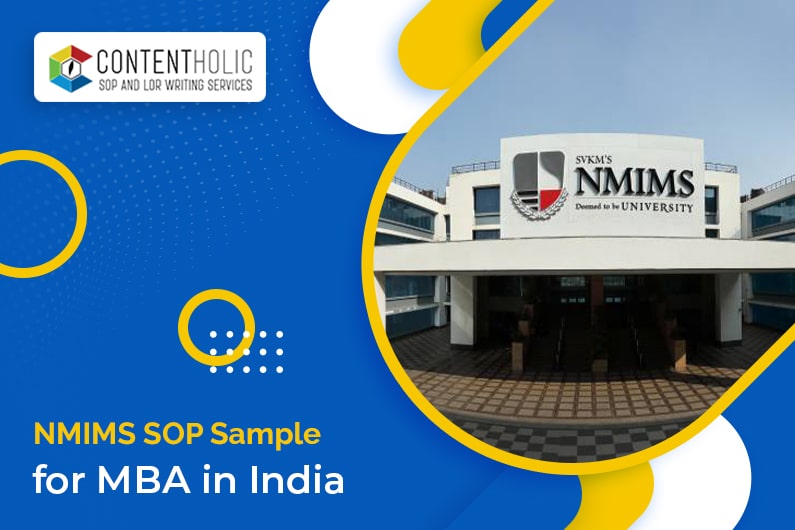Getting into a renowned university’s PhD program is not a cakewalk. Catching up on the huge pile of paperwork required in quite short deadlines, applicants need to always stay on their toes. Furthermore, each document submitted in the application process plays a pivotal role in moving the decision in your favour.
Your SOP, LOR, resume, research essay, sample research paper- all act as a deciding factor for the university. And among these, SOP carries a huge weightage, making it an extremely important document.
What is a Statement of Purpose for a PhD?
An SOP is a document that students write to highlight their strengths, goals and aspirations to the admission panel and visa officer. An SOP for PhD application focuses on your academics, interests, and future goals and aspirations. You’re required to detail your career objectives and how you can accomplish that by getting into the university you’re applying for. So, you must know about the university infrastructure and faculty. With that, you can also structure your SOP as per the principles and values of the institute.
Why is SOP for PhD Important?
An SOP for PhD admission will strengthen your case before the admission panel. It will validate you as the best fit to get an admission for PhD in the respective university. They will know about you, your personality and your goals better. They will also know that you have carried out the required research, and then you have made an informed decision of applying for a PhD in a particular university. This will tilt their decision in your favour.
How does an SOP for PhD differ from an SOP for UG, MS and MBA?
An SOP for PhD application is much different from an SOP for UG, MS, MBA and other degrees. For example, your SOP for UG focuses more on your childhood, interest, hobbies, goals and aspirations. In contrast, your SOP for MS degree focuses more on your passion for the chosen subject and your aspirations. And your SOP for MBA degree focuses majorly on your goals, leadership and management skills.
But SOP PhD is majorly focused on research. You talk about your own research, any field you may find interesting for research, some research by a professor or someone else you found interesting, and so on. While writing SOP for PhD, you showcase your research abilities and other skills like analytical, reasoning, and time management skills. And then, from your SOP, the reader should be able to draw out two major things:
- Your potential to be a qualified scholar.
- How your research topic is in line with the faculty & university of your choice. Will they be able to benefit your research or not?
What information should an SOP for PhD include?
While writing SOP for PhD admission, you should ensure that it essentially answers the following questions:
- How will completing your doctorate from a particular university benefit you?
- What attracts you to the university?
- Why do you wish to move to a particular country to do your PhD and not your home country?
- What is the degree of your expertise in the respective domain of your doctorate?
- What are your long-term and short-term plans after completing your PhD?
- What are your interests and hobbies, and how are they in line with your chosen field?
How to write an SOP for PhD?
Following are the steps for SOP writing for PhD:
- Brief introduction
Write a brief but captive introduction to start your SOP. Since it is the first paragraph of your SOP, it is making your first impression on the reader. Ensure that it attracts and interests the reader to read further.
- Previous academic details and research achievements
Include a brief academic background here, and it should mainly lead to showing interest in the given domain from the college level. If you have made any projects or thesis during your masters, talk about them and show how they align with your research topic. If you have already engaged yourself in some research work, talk about that as well. You can mention the process of your SOP and exhibit how your previous experience will help you during your research.
- Reasons for pursuing a specific program and how you perceive specializing in it
Give details on why you are passionate about the subject you want to get your doctorate. Discuss what excites you in the respective field of study and what led you to research in this area. Also, discuss how you perceive the task you are planning to undertake. Your reason for opting for this particular [program and topic should be compelling and rational.
- Reasons for choosing a particular country
Your SOP for PhD admission demands you to answer why you wish to conduct your research in your chosen country. You need to show your research here as well, and you can answer it well if you:
- Any past researchers who have conducted their research on the subject in the country.
- How the demographics and policies of the country are ideal for conducting your research there. Basically, show the feasibility of conducting your research in that country instead of your home country.
- Reason for choosing a particular university
Your SOP should also answer why you wish to complete your doctorate from a particular university. You need to put in some effort to research about the university, its faculty, culture etc. Like before, you can also research previous researchers from the same field from the university. And then, you need to use that research to support and display your rationale for choosing the university.
- Intellectual curiosity
You can also display your intellectual curiosity in the given subject in your statement of purpose for PhD. You can add certain smart and good examples that can leave a good impression on the reader.
- Work experience
The admission committee is also interested in knowing about your work experience and any special skills you possess in the field. Add them only if it is relevant to your research field. The admission officers will more likely consider you a good fit during the admission procedure.
- Short-term & long-term goals
Show the admission officers that you have planned things well. Give a brief about your short-term goals, that is, your plans after completing the doctorate. And add your long-term goals like what you have planned for your career ahead. Then, ensure that you link your goals with your doctorate. Show how it will help you in achieving your goals. Your vision for the next 10-15 years of your career from today will provide the officers with a measure of your thought process.
- You can also write about any research areas you are planning to explore & conduct. Also, mention how and why your research areas will benefit the community.
- Explain setbacks, if any
If you’ve had any setbacks in your life, briefly mention them. Like if you scored bad in certain subjects, then provide a valid reason for it. Make sure that you also mention how you overcame it or plan not to let that happen again. It is also an opportunity to display how your setbacks do not affect your goals.
- Conclude
The last paragraph should again be crafted well as it will leave a lasting impression on the reader. Write a good concluding paragraph that either displays your calibre, your passion in the field and the relevance of your research, or assurance of good performance.
What are some tips for writing a good SOP for PhD?
Writing an exemplary SOP to get admission to your chosen university for PhD is important to secure admission. SOP writing for PhD is a delicate task that needs to be handled well. It should include all the relevant details and show your mettle efficiently. You can consult some PhD SOP samples available online or consult professional SOP writers to ensure its quality. For now, the following are some tips that will help you write a good SOP:
- Write good introductory and concluding paragraphs
The introductory paragraph makes your first impression, and the concluding paragraph leaves your last impression on the reader, which implies that these have to be crafted well to make them appealing and interesting to set the tone of the essay.
- Be straight-forward with your research interest
Clearly and lucidly tell about your research interest. In fact, it is good to mention it in your introductory paragraph only. Mention your research topic, or if you’re not sure about the topic yet, then the research field along with possible options. If you’ve some topics in mind, mention those too. Overall, it should answer:
- What is the topic or field of your research?
- Why did you choose it?
- What have you learned in the field so far that attracted you to this topic?
- How passionate are you to pursue this topic/field further?
- Mention your goals clearly
Many people are vague and unclear about their short-term and long-term goals. This leads to immediate rejection by the admission panel. Moreover, the SOP is not merely about your goals and how you’re in pursuit of them. It is supposed to highlight your strengths mainly to show that you’re the right fit for the course.
- Show you’re the right fit
Your SOP should clearly be able to tell that you’re the perfect fit for the course.
- Answer all “WHYs” properly
Answer a direct and well-crafted answer for all the WHYs. Such as why did you choose this program for your research? Why did you choose this university and this country to pursue your research? Why did you choose this topic for specialization? Why do you think your research topic is relevant?
- Don’t focus too much on work experience
Mentioning your previous work experience is good to show your mettle in the field. But ensure that it does not take all the space in your SOP. A brief mention of your relevant work experience in the field and how it will help your research is good enough.
- Proofread
Your first draft is definitely not your final draft. Grammatical errors, semantical errors will surely be there in your first draft. To ensure the quality of your SOP, you need to proofread and refine it multiple times.
- Circulate your SOP
Give your SOP to other qualified people to read. This will help you get objective feedback and will help you to craft an even better SOP. You can also consult online SOP writers to get feedback from professional SOP writers and ensure the quality of your SOP.
What are common mistakes to avoid in an SOP for PhD?
Several common mistakes can affect your chances of admission adversely. Some of the common mistakes are:
- Not enough research conducted in the chosen research field
To answer all the whys and show yourself the best fit, you need to make efforts and conduct the relevant research. Without research, you’ll write vague answers that will not be able to secure your admission for you.
- Procrastinating
Students keep on procrastinating on drafting their SOP, and in the end, they fall short on time. This leads to them making an SOP of substandard quality as it hasn’t gone through the required multiple proofreading and reviews.
- Grammatical errors
There will be grammatical and semantic errors in the SOP without proofreading, which will not leave a good impression on the reader.
- Tone of the SOP
Students either keep the tone of their SOP too casual or too formal. Both of the tones are not good for the SOP. Ensure that your SOP is in an engaging & conversational tone.
Conclusion
Statement of Purpose plays a huge role in securing your admission to the university you want, which is why you need to craft your SOP with utmost care and ensure its quality. You can access PhD statement of purpose examples available online or consult some professional SOP writing services before you start writing your SOP. Your SOP should majorly focus on your research and show how you’re perfect for doing this research.
We, at Contentholic have experienced writers who have been writing SOPs for a significant number of years. Therefore, get in touch with us and get the best SOP which will help you in study in your dream college.






